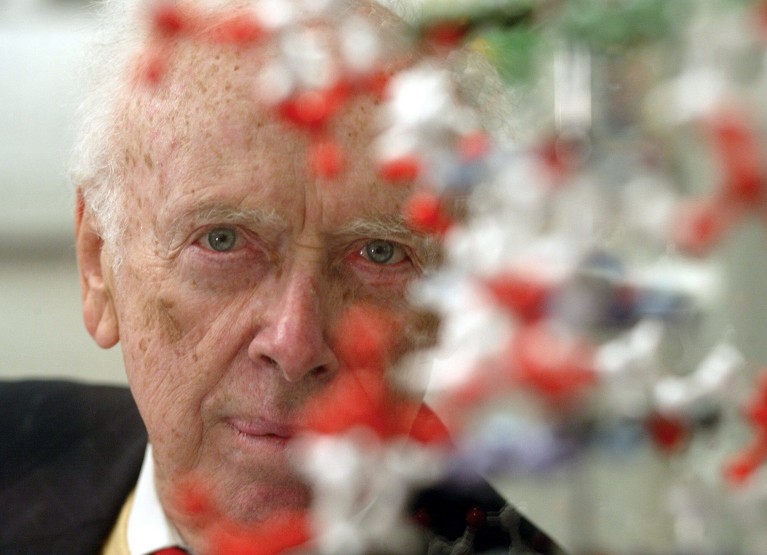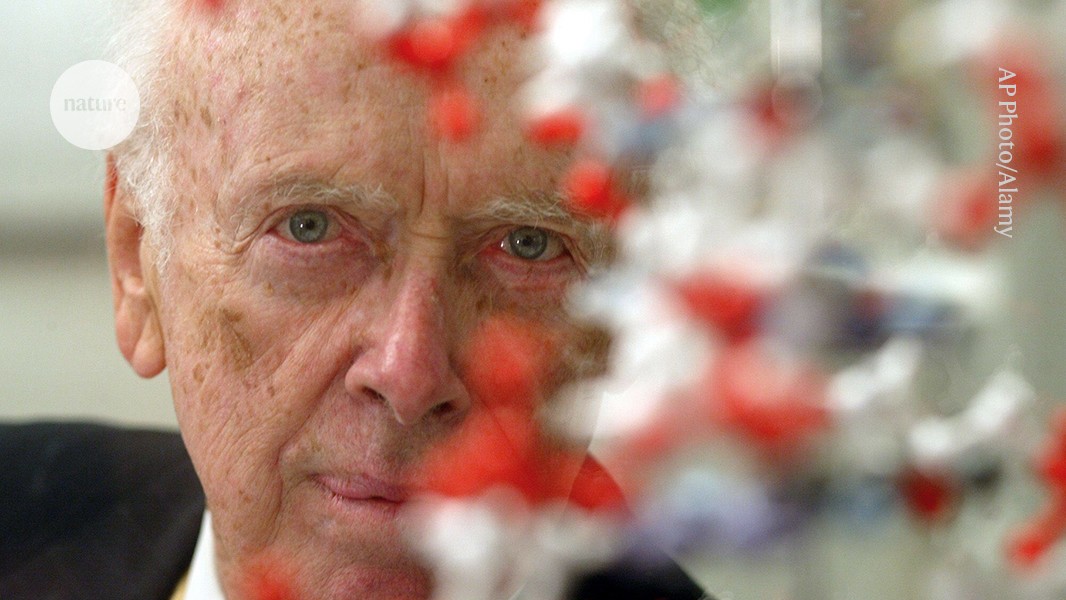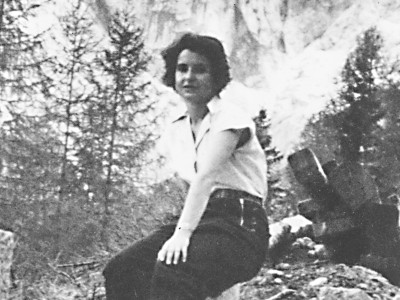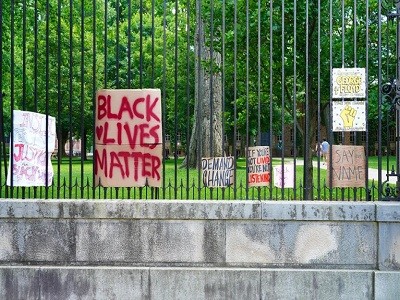
Watson shared in the 1962 Nobel Prize in Physiology or Medicine for his role in elucidating the structure of DNA. Credit: AP
James Dewey Watson – who won the Nobel Prize for his role in divining the structure of DNA; was instrumental in initiating and propelling the Human Genome Project; and who became notorious for his history of racist and sexist comments – has died at 97.
The discovery of the double-helix structure of DNA paved the way for scientists to unravel the mechanisms behind genetic inheritance and how cells synthesize proteins. Gene therapies, the sequencing of the human genome and the development of monoclonal antibodies as treatments for cancer are just a few of the developments that would not have been possible without an understanding of DNA’s structure.
“The elucidation of the structure of the double helix goes down, along with Mendel and Darwin, as the three greatest discoveries in biology,” says Bruce Stillman, president of Cold Spring Harbor Laboratory in New York, where Watson had various positions.
Landmark paper
Watson and Francis Crick, who worked together at the University of Cambridge, UK, solved the structure of DNA within a few years of their first meeting. In 1953, they published a seminal paper1 in Nature titled “A Structure for Deoxyribose Nucleic Acid”. Watson had just turned 25.
“For him, nothing was impossible,” says Robert Martienssen, a geneticist at Cold Spring Harbor. “Nothing was out of reach.”
But the discovery of the DNA helix also became enmeshed in controversy. Watson and Crick elucidated the complex structure with the help of data and ideas from Rosalind Franklin and Maurice Wilkins, who were working at King’s College London at the time. Some of these data were shared without Franklin’s permission. Wilkins was awarded the Nobel Prize in Physiology or Medicine in 1962 with Watson and Crick. Franklin had died of ovarian cancer 4 years earlier at the age of 37, and so was ineligible for the award.
What Rosalind Franklin truly contributed to the discovery of DNA’s structure
Watson and Crick, “could have — and should have — requested permission to use the data and made clear exactly what they had done, first to Franklin and Wilkins, and then to the rest of the world,” wrote Matthew Cobb, and Nathaniel Comfort, historians of science at the University of Manchester, UK, and Johns Hopkins University in Baltimore, Maryland, respectively, in a 2023 essay2 on Franklin.
In the aftermath of the discovery, Watson was particularly unkind about Franklin and dismissive of the role of women in science generally. In a best-selling book about the discovery of the double helix, he criticized Franklin’s appearance and wrote, “The thought could not be avoided that the best home for a feminist was in another person’s lab.”
No answers
Colleagues who were close to Watson have long had to wrestle with his mixed legacy. Nancy Hopkins, a molecular biologist at the Massachusetts Institute of Technology in Cambridge, says that Watson convinced her to pursue her PhD, at a time when few women pursued careers in science. When she launched her own lab and feared she might not get tenure, Watson convinced her to push on. “Just keep working and when you come up for tenure, if the letters are good enough, you’ll get tenure. Or I’ll sue them,” Hopkins says Watson told her.
Hopkins later became a vocal advocate for women in science and says that she is just one of many women Watson trained and supported. She also says she is bewildered by Watson’s rhetoric on race.
End racism in science
A 2001 lecture at the University of California, Berkeley, left many in the audience stunned when Watson made remarks linking skin colour to sexual libido, and thinness to ambition.
“That was the beginning of the end,” Hopkins says of the lecture. “What happened later on, I just don’t know the answer.”
In 2007, Watson abandoned a book tour after asserting that he thought Black people are less intelligent than white people. At the time, he was still active at the Cold Spring Harbor Laboratory, where he had once been the director and had helped to make the lab a pre-eminent scientific institution. But he was removed from his leadership roles at the lab for his statements about race and intelligence. The institution severed ties with him completely after he made similar remarks in 2020. He also had a history of anti-Semitic comments, such as a 2007 remark that “Some anti-Semitism is justified.”




